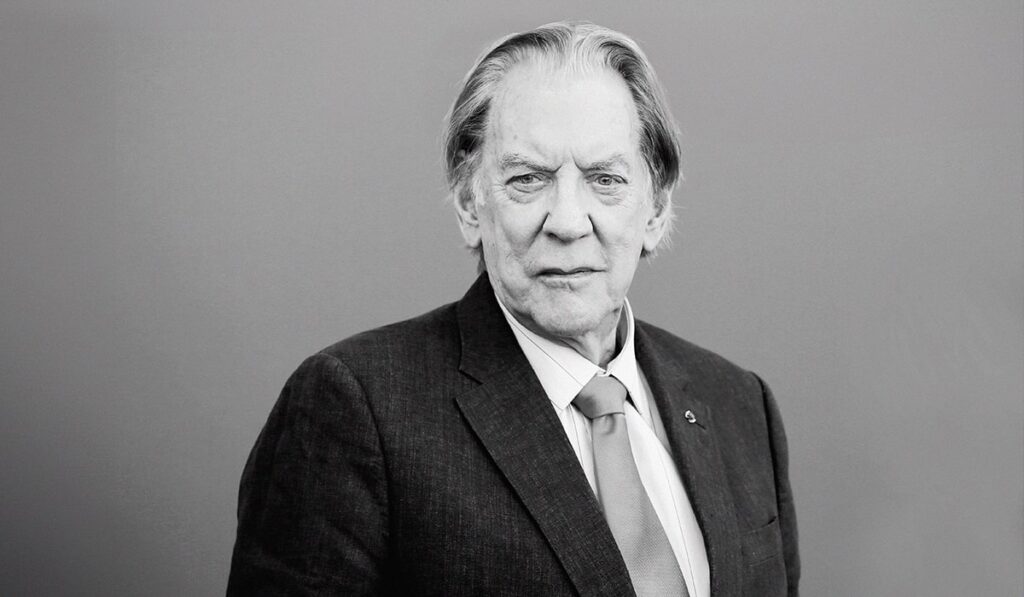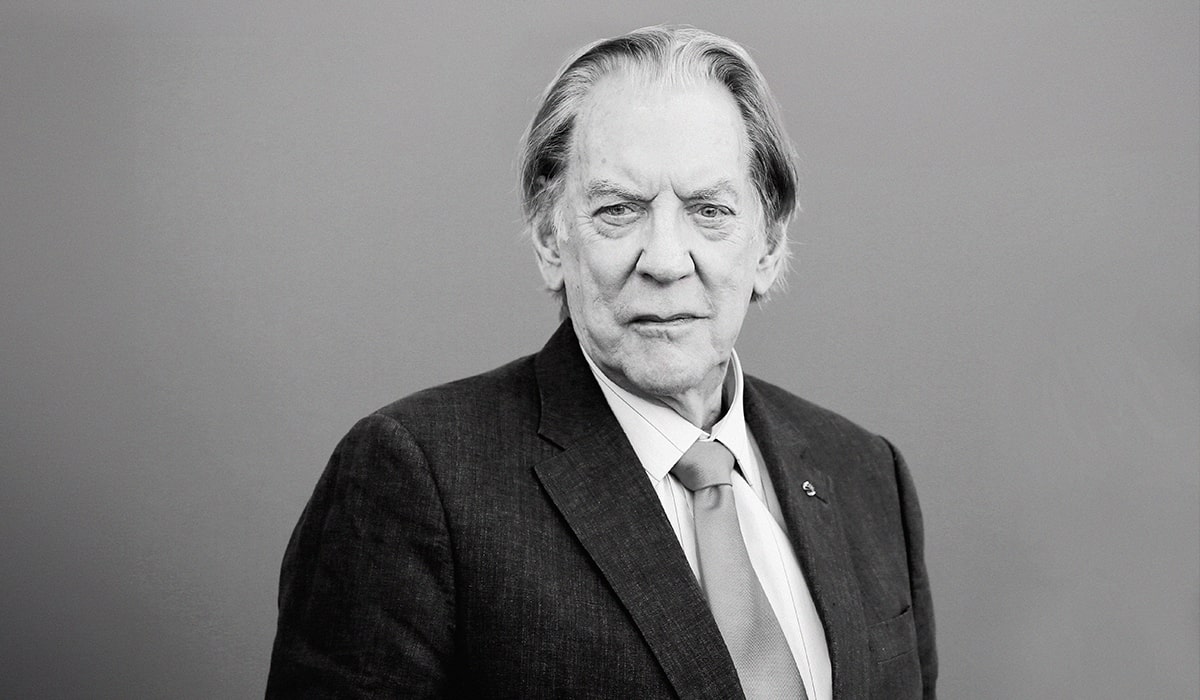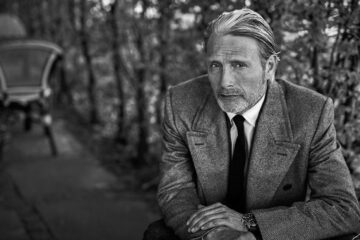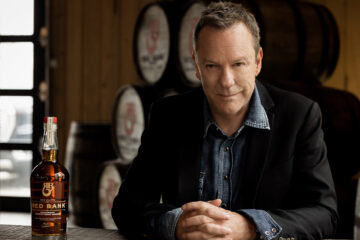Donald Sutherland: Master Craftsman

The passing of legendary actor Donald Sutherland ends an era of classic acting and presence on the worldwide stage and screen.
Oliver Stone’s controversial 1991 film JFK featured an impressive array of Hollywood stars, including Kevin Costner, Tommy Lee Jones, Jack Lemon, Walter Matthau, John Candy and Ed Asner, and was more than three hours long. Donald Sutherland stole that movie in a single four-minute scene.
That was the magic, craftsmanship and depth of ability the great Canadian icon possessed, whose death at age 88 was announced by his son Kiefer on June 20.
In JFK, Sutherland appears only once, as the mysterious “Mr. X,” a high-level government intelligence operative. During that riveting four-minute scene he explains to Costner’s character, New Orleans District Attorney Jim Garrison, his theory of the Kennedy assassination while poking holes in the Warren Commission Report, which concluded that Lee Harvey Oswald was the lone assassin and that there was no conspiracy involved.
If you have plans to enter the field of acting, watch Sutherland’s command of the screen in those few minutes. You cannot turn your eyes away from this master craftsman at the pinnacle of his artistry.
Born in Saint John, N.B., Sutherland’s family later moved to Nova Scotia. After high school he studied engineering at the University of Toronto, and at its Victoria College. Luckily for us, Sutherland changed his mind about becoming an engineer and left Canada for England in 1957, studying at the London Academy of Music and Dramatic Art, followed by 18 months of treading the boards at the Perth Repertory Theatre in Scotland.
He began getting small roles in British films and TV in the mid-1960s, including appearances on popular shows such as The Avengers and The Saint, which led to his breakthrough role in the World War II film The Dirty Dozen. Playing one in a band of misfit troops on a suicide mission against a German fortress, Sutherland’s slightly wacky, lovable, grinning character played beautifully opposite the film’s other stars, which included Lee Marvin and Charles Bronson.
Sutherland was now in great demand in Hollywood, starring opposite Elliot Gould in M*A*S*H as the rebellious doctor Hawkeye Pierce, Jane Fonda in Klute, Julie Christie in Don’t Look Now and Brooke Adams and Jeff Goldblum in 1978’s Invasion of the Body Snatchers.
That same year he accepted the role as the pot-smoking Professor Dave Jennings in National Lampoon’s Animal House. The movie was a huge blockbuster hit that summer, introducing Sutherland to a new generation of younger fans.
Hollywood studios and producers now realized that having Donald Sutherland in your cast would elevate their movie and make it must-see. He had major roles opposite his big-name contemporaries Michael Douglas and Demi Moore in Barry Levinson’s drama Disclosure and Clint Eastwood, Tommy Lee Jones and James Garner in the hugely successful 2000 film Space Cowboys. Sutherland followed that up with starring roles in 2003’s The Italian Job, 2005’s Pride & Prejudice and, more recently, as President Snow in The Hunger Games franchise.
His impressive career won him many awards, including a television Emmy, Golden Globe Awards, and, in 2017, an Honorary Academy Award for his body of work. In 2011, he was awarded a star on the Hollywood Walk of Fame, where it is laid next to the star of his actor son, Kiefer Sutherland.
Sutherland was a global brand ambassador for his beloved Canada, waving the Maple Leaf everywhere and anywhere. He was made a Companion of the Order of Canada in 2019 and, just last October, was honoured by Canada Post with a commemorative postage stamp. It apparently was a good decision when he chose acting over engineering.
The Round Table of truly legendary actors from the past 50 years is not very crowded, but Donald Sutherland undoubtedly deserves a seat at that table. He was an artist, bon vivant, true gentleman and proud Canadian. We are sorry to lose him, but so lucky and grateful he came our way.



















































































